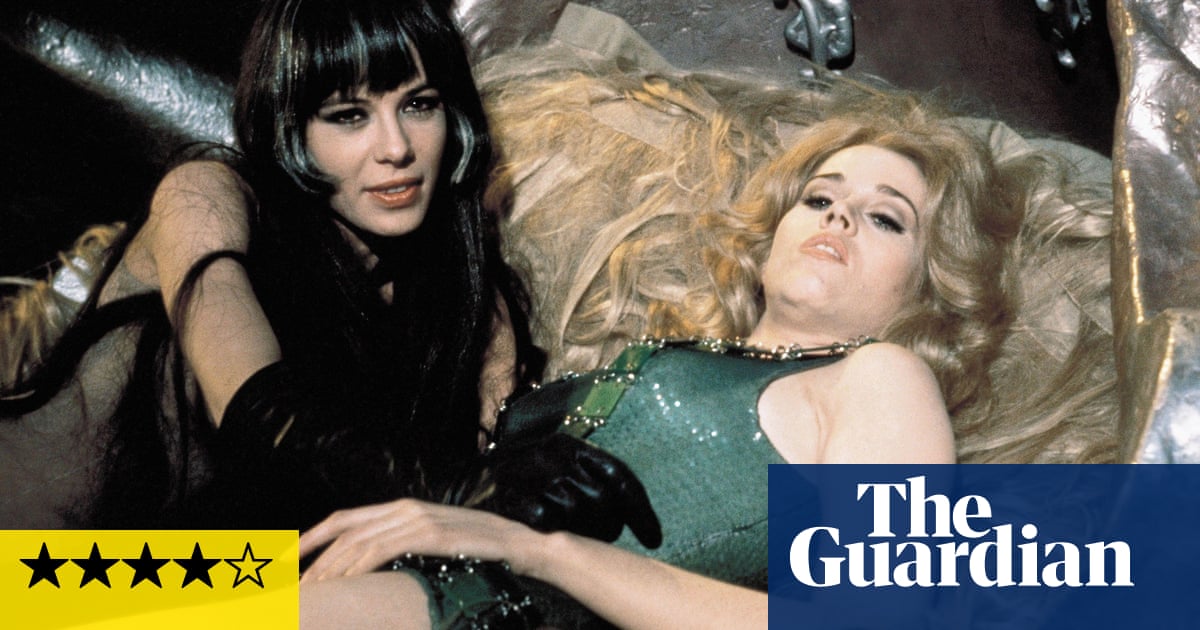
ony Todd chuckles heartily. “Why in the fuck would I go to a mirror, with me in the mirror – the actor who played the role – and call out my own damn name five times?” I have just asked the dumb – but obligatory – question of whether he has ever dared utter Candyman’s fatal invocation. Todd played Daniel Robitaille, AKA the Candyman, the hook-handed, bee-spouting yet swoonsome spectre from the 1992 horror classic. “I have never waded in that water. I don’t even listen to people when they come to me and say that. I cut them off. They try it; they want to me stop them or something.”
Todd is probably getting quite a bit of this right now. Candyman was already enjoying a critical revival in the last few years as Black Lives Matter and other social movements gathered headway; despite, or perhaps because of, its white director (the Englishman Bernard Rose), it was able to smuggle in a theme that was exceptional for a 90s horror film: the psychic cost of centuries of oppression of African Americans. Now, after the George Floyd protests and with a Jordan Peele-produced sequel imminent, interest in this unusually sensitive piece of Hollywood product is white-hot.
The new film – now delayed until next year – revolves around the gentrification in Chicago of the area where the deprived Cabrini-Green housing project depicted in the original was torn down. When gentrifying its own film properties, Hollywood normally has similar levels of respect for former residents. Remarkably, though, Todd is returning in his most celebrated role – though he still seemed unsure of this as late as three months before shooting began in August last year. It’s a testament to his brilliant performance first time round, the lordly elegance he brought to what could have been just another movie bogeyman.
He can only drop a few tantalising titbits about the new version. “I’ve seen it and it’s brilliant. It definitely has a feminist touch. I know that Nia [DaCosta, the film’s director] is a fan of body horror – you know, disfigurations à la The Fly.”
Todd is talking from his home in Marina del Rey, Los Angeles. The 65-year-old is still on semi-lockdown, just popping out every other day for supplies. During confinement earlier this year, he collaborated again with Rose on a “massive” improvised project, currently clocking in at over two and a half hours, and being shopped to Working Title. Other than that: “It’s the down days, when you let your mind wander.”
Perhaps his mind wandered to the film that gave him his first big break: Platoon. It’s the subject of an exhaustive new making-of documentary, Brothers in Arms, which details the gruelling 30-day initiation the ensemble – which also included Charlie Sheen, Johnny Depp, Forest Whitaker and Willem Dafoe – were put through. “I’m not going to name any names,” says Todd, “but I saw grown men cry.”
Actors’ boot camp is now standard on war movies, but back then it was a Hollywood first; military consultant Dale Dye had to talk Oliver Stone into it. Out in the Philippines, where Ferdinand Marcos had been freshly deposed, Dye had the troupe digging their own bivouacs and going out on night raids. Todd, who played a sergeant, says he had it easy: “I had intel about what time a simulated attack was gonna occur. I also had a choice of MREs [meals ready to eat]; some of them were absolutely dreadful.” Dye would also give his “officers” privileged nips from the supply of airport bottles of Jack Daniel’s he kept stowed away.
The process resulted in the rawness, tension and camaraderie Platoon still radiates today. Todd believes, like others on the cast, that Stone hired him for a certain authenticity. “The last thing he wanted was anybody that looked like an actor. He wanted real faces. So it helped that I came from the theatre and I came from poverty.” The director had seen him in a one-man version of Dalton Trumbo’s antiwar novel Johnny Got His Gun at a Hell’s Kitchen theatre, where Todd was also working the bar.
Todd credits his aunt, Clara Elliston, who took custody of him when he was three, for setting him on an artistic course. “My mother was going through some issues. So the family intervened. And, you know, my mother has no memory of it to this day, and I respect her as the woman who birthed me. But, you know, I’m also glad that my aunt intervened and put me on the right path,” he says. He moved from Washington DC to Hartford, Connecticut, where Elliston – who couldn’t have children – worked as a maid. “She would bring me to some of her places, and I would stay in the library while she cleaned the house. I loved books at an early age, so I was content.”
Elliston enrolled him on summer courses and later encouraged his interest in the theatre, occasionally supporting him financially as a young actor in New York. Todd has since reconciled with his mother – now a born-again Christian pastor – but says coming to terms with his turbulent infant years was what drove him later: “That all fuels me as an actor. Because it is part of my DNA, part of my pain, my pleasure, my intellectual zone, my comfort and my discomfort.” This fertile ground is what the New England theatre schools who gave him scholarships obviously saw; though his 6ft 5in frame and remarkable face – alternately graceful or shark-like – can’t have hurt his chances.
His horror-icon status has meant that Hollywood has readily slotted him into villainous or at least sinister roles; his humongous filmography also includes Final Destination, The Strange Case of Dr Jekyll and Mr Hyde, and Hatchet. (Sometimes though, Todd was on the receiving end, as in a spectacular Elton John-related demise in The Rock in which he is blown out of a window by Nicolas Cage who sneers: “You’re the Rocketman!”) But he is convinced that depictions of evil in genre films such as Candyman must be grounded in reality to be meaningful; he is certain the new version, in the context of Black Lives Matter, cannot fail to strike a chord.
In terms of stemming real-life horror, he supports police reform – though not the defunding of police. (Two of his uncles were New York homicide detectives.) Direct action for Todd doesn’t just have to happen on the streets: he engages in social work, which has included gang outreach work on the back of his Candyman fame and acting seminars for underprivileged kids. This pay-it-forward strain will, he says, be a major theme in his autobiography, another of his lockdown projects. “I’m an African American man who wasn’t supposed to make it. And somehow I beat the system. I want to be an inspiration. Cos somewhere out there is a little boy who’s confused, just like I was. And I want to say: you can do it.”
• Brothers in Arms: The Making of Platoon is out on DVD and digital download on 5 October. Candyman is out next year.












